Memorial of Hermenegildo Augusto de Brito Capello & Roberto Ivens (ENG/ PT/ DE)
Hermenegildo Augusto de Brito Capello
Wow, that's a long name, isn't it?
On my way through Ponta Delgado, Sao Miguel, I saw this memorial.
So I hold on and checked the history of the two namens...really interesting...
Mr. Augusto Capello was once a Portuguese officer, he was even an African explorer and also 5 years governor of Angola, between 1886 - 1891.
Augusto Carlos de Brito Capello was born in 1841 in Palmela and died again in Lisbon on 4 May 1917.
Augusto Capello decided to join the Portuguese Navy in 1858 and was appointed captain in 1880. Already in 1860 he took part in an expedition to Angola. From the year 1877 his permanent companion Roberto Ivens was on the several journeys across Africa.
They went to the northeast and explored the territory of Kwango in Kioko. Together they followed its course to Tembo Aluma. Augusto and Ivens were forced on their way back to Malansche, delaying their endeavor and further attempts to advance north. They wanted to find the legendary Lake Aquilonda.
But instead of Lake Aquilonda, they discovered many smaller areas of water in another large and swampy area.
It is said that on March 11 they brought Mossamedes to the west coast of Angola for their legendary crossing of Africa.
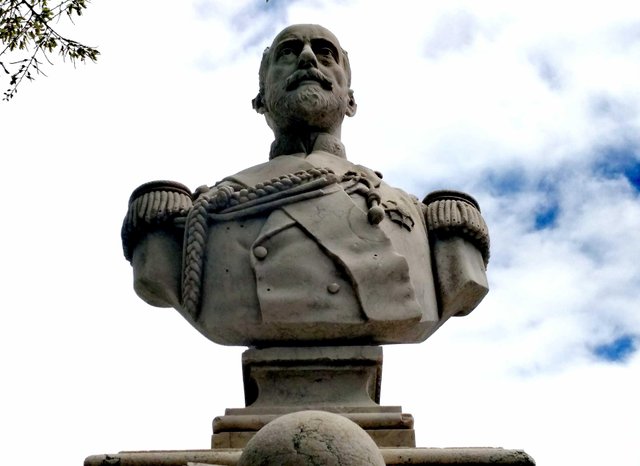
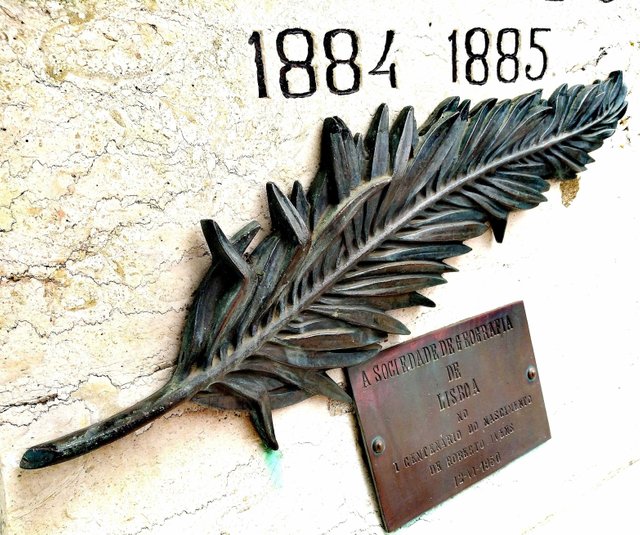
Roberto Ivens
Roberto Ivens was born on 12 June 1850 in Ponta Delgada, Azores/Portugal and died in Lisbon on 29 January 1898. Ivens was also an officer in the Portuguese Navy and, like Augusto, an African explorer.
Both were particularly in the years 1877 as well as 1884/1885 on these legendary research journeys in Africa, in order to be more exactly Angola and Mozambique on the way.
About Roberto Ivens it is known that he was born in the parish São Pedro, which is located in the capital Ponta Delgada on the Azores in Portugal. Ivens was the son of Margarida Júlia de Medeiros Castelo Branco and Robert Breakspeare Ivens.
Again Robert Breakspeare Ivens was the maternal great-grandson of the famous Thomas Hickling, the deputy American consul in Ponta Delgada.
His parents were not married and since at that time different rules prevailed and the social differences and conventions were enormous, Iven's birth took place in a rented house where his father had accommodated his lover. At some point they apparently quarreled, so the mother was bumped out. At her request, the newborn Ivens was baptized in the church of Fajã de Cima as the son of an unknown father.
When Ivens was just three years old, he lost his mother to tuberculosis.
But since the name Ivens was highly regarded in Ponta Delgada, the boy profited and attended the primary school of the convent of grace. Because of past events he was called "Roberto do Diabo".
His father settled in Faro, in the Algarve of Portugal, where he also brought his children in August 1858.
In 1861 Roberto Ivens was admitted to the naval school in Lisbon, where he studied for his career as a naval officer. He was considered an intelligent and applied student, but also very playful.
Co-students said:
"Where there was a guitar, there was Ivens and where there was Ivens, there was a search for a guitar.
From 1877 to 1880 he was involved with Hermenegildo Capelo in the scientific research of Africa. He was even appointed a member of the Central Commission for Geography on 19 August 1880.
During the whole expedition he wrote, drew, sketched and sent letters while Mr. Hermenegildo Capelo collected samples of plants, rocks and animals.
Together they travelled more than 4500 geographical miles, more than 8300 km. Dsvon were 1,500 even by unknown areas.
Two gentlemen on wanderings...
I found their autobiography interesting, which is why I post it here today.
Through their expeditions a strong influence took place in history, which is very interesting in my eyes.
Text and Photos made by myself. Peace
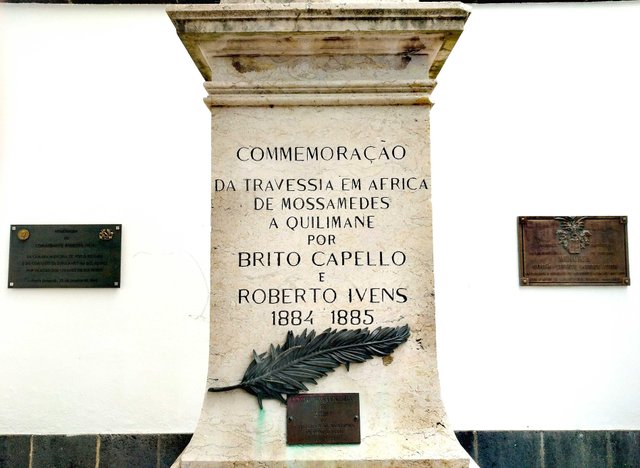
Hermenegildo Augusto de Brito Capello
É um nome comprido, não é?
O Sr. Augusto Capello já foi um oficial português, foi até um explorador africano e também governador de Angola durante 5 anos, entre 1886 e 1891.
Augusto Carlos de Brito Capello nasceu em 1841 em Palmela e morreu novamente em Lisboa a 4 de Maio de 1917.
Augusto Capello decidiu juntar-se à Marinha Portuguesa em 1858 e foi nomeado capitão em 1880. Já em 1860 participou numa expedição a Angola. A partir de 1877, o seu companheiro permanente Roberto Ivens fez várias viagens por toda a África.
Foram para o nordeste e exploraram o território do Kwango em Kioko. Juntos seguiram o seu curso até Tembo Aluma. Augusto e Ivens foram forçados a regressar a Malansche, atrasando os seus esforços e novas tentativas de avançar para norte. Eles queriam encontrar o lendário Lago Aquilonda.
Mas ao invés do Lago Aquilonda, eles descobriram muitas áreas menores de água em outra área grande e pantanosa.
Diz-se que no dia 11 de Março trouxeram Mossamedes para a costa oeste de Angola para a sua lendária travessia de África.
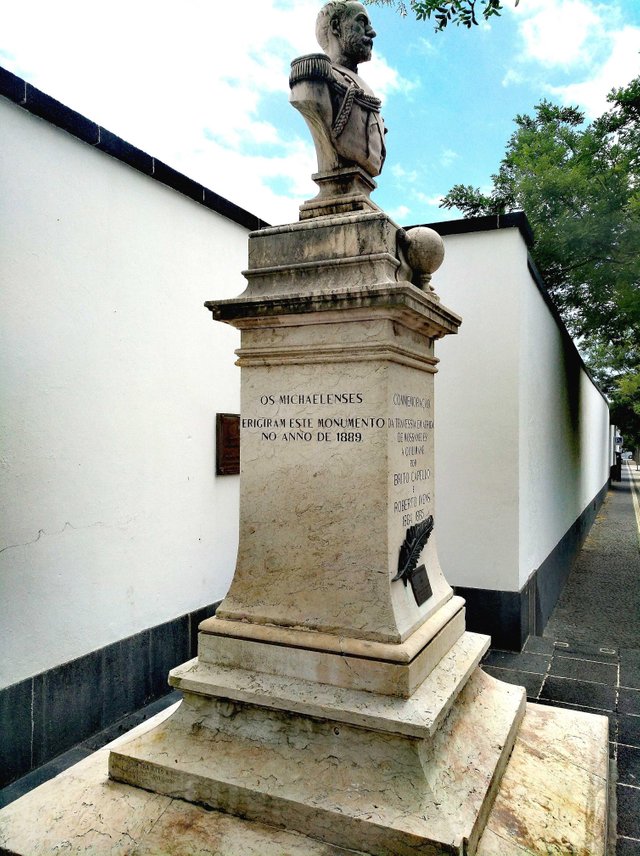
Roberto Ivens
Roberto Ivens nasceu a 12 de Junho de 1850 em Ponta Delgada, Açores/Portugal e morreu em Lisboa a 29 de Janeiro de 1898. Ivens foi também oficial da Marinha Portuguesa e, tal como Augusto, um explorador africano.
Ambos foram particularmente nos anos de 1877 e 1884/1885 nestas lendárias viagens de investigação em África, a fim de serem mais exactamente Angola e Moçambique a caminho.
Sobre Roberto Ivens sabe-se que ele nasceu na freguesia de São Pedro, que está localizada na capital Ponta Delgada, nos Açores, em Portugal. Ivens era filho de Margarida Júlia de Medeiros Castelo Branco e Robert Breakspeare Ivens.
Mais uma vez Robert Breakspeare Ivens foi bisneto materno do famoso Thomas Hickling, cônsul adjunto americano em Ponta Delgada.
Os seus pais não eram casados e como nessa altura prevaleceram regras diferentes e as diferenças sociais e convenções eram enormes, o nascimento de Iven teve lugar numa casa alugada onde o seu pai tinha acolhido o seu amante. Em algum momento eles aparentemente discutiram, então a mãe foi expulsa. A seu pedido, o recém-nascido Ivens foi baptizado na igreja de Fajã de Cima como filho de um pai desconhecido.
Quando Ivens tinha apenas três anos de idade, perdeu a mãe por tuberculose.
Mas como o nome Ivens era muito apreciado em Ponta Delgada, o menino aproveitou e frequentou a escola primária do convento da graça. Por causa de eventos passados, ele foi chamado de "Roberto do Diabo".
O seu pai instalou-se em Faro, no Algarve de Portugal, onde também trouxe os seus filhos em Agosto de 1858.
Em 1861 Roberto Ivens foi admitido na escola naval de Lisboa, onde estudou para a sua carreira como oficial naval. Foi considerado um aluno inteligente e aplicado, mas também muito brincalhão.
Disseram os co-estudantes:
"Onde havia uma guitarra, havia Ivens e onde havia Ivens, havia uma busca por uma guitarra.
De 1877 a 1880 esteve envolvido com Hermenegildo Capelo na pesquisa científica da África. Foi mesmo nomeado membro da Comissão Central de Geografia a 19 de Agosto de 1880.
Durante toda a expedição ele escreveu, desenhou, desenhou, desenhou e enviou cartas enquanto o Sr. Hermenegildo Capelo recolhia amostras de plantas, rochas e animais.
Juntos eles viajaram mais de 4500 milhas geográficas, mais de 8300 km. Dsvon foram 1.500 mesmo por áreas desconhecidas.
Dois cavalheiros em passeios....
Achei interessante a autobiografia deles, por isso coloquei aqui hoje.
Através das suas expedições houve uma forte influência na história, o que é muito interessante aos meus olhos.
Texto e fotos feitas por mim mesmo. Paz
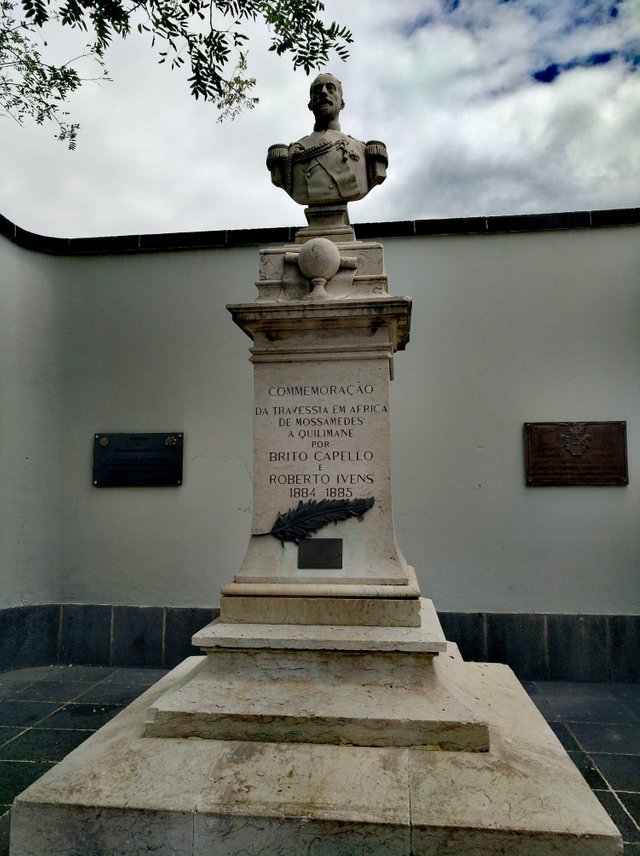
Hermenegildo Augusto de Brito Capello
Wow, das ist mal ein langer Name, oder?
Der Herr Augusto Capello war einst ein portugiesischer Offizier, er war sogar Afrikaforscher und ebenfalls 5 Jahre Gouverneur von Angola, und zwar zwischen 1886 - 1891.
Augusto Carlos de Brito Capello wurde 1841 in Palmela zur Welt gebracht und verstarb wiederum in Lissabon am 4. Mai 1917.
Augusto Capello beschloss 1858 zur portugiesischen Marine zu gehen und wurde 1880 dann auch zum Kapitän ernannt. Schon im Jahre 1860 nahm er an einer Expedition nach Angola teil. Ab dem Jahre 1877 war sein Dauerbegleiter Roberto Ivens auf den etlichen Reisen quer durch Afrika.
Sie gingen bis nach Nordosten und erforschten das Territorium des Kwango in Kioko. Zusammen verfolgten sie dessen Lauf bis nach Tembo Aluma. Augusto und Ivens wurden auf ihrem Wege zur Umkehr nach Malansche gezwungen, somit verzögerte sich ihr Unterfangen und weitere Versuche, um nach Norden vorzudringen. Sie wollten den sagenhaften Aquilondasee finden.
Doch statt den Aquilondasee entdeckten sie eine viele kleinerer Wasserflächen in einem anderen großflächigen und sumpfigen Gebiet.
Es heißt, das sie an einem 11. März von Mossamedes an der Westküste Angolas zu ihrer sagenhaften Durchquerung Afrikas aufbrachten.
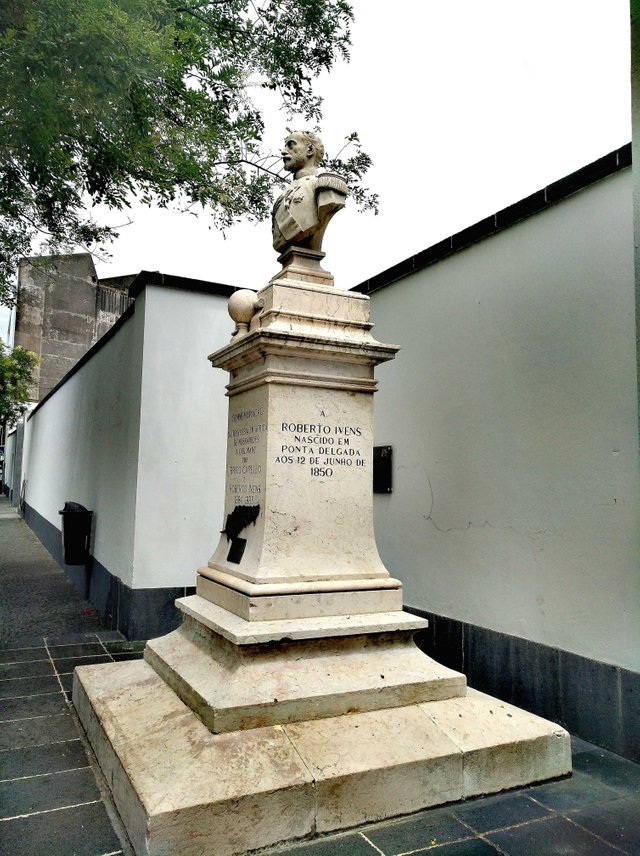
Roberto Ivens
Roberto Ivens wurde am 12. Juni 1850 in Ponta Delgada, Azoren/ Portugal zur Welt gebracht und verstarb in Lissabon am 29. Januar 1898. Ivens war auch ein Offizier der portugiesischen Marine und wie Augusto Afrikaforscher.
Beide waren vor allem in den Jahren 1877 sowie 1884/1885 auf diesen legendären Forschungsreisen in Afrika, um genauer zu sein Angola und Mosambik unterwegs.
Über Roberto Ivens ist bekannt, dass er in der Pfarrei São Pedro geboren wurde, diese liegt in der Hauptstadt Ponta Delgada auf den Azoren in Portugal. Ivens war Sohn von Margarida Júlia de Medeiros Castelo Branco und Robert Breakspeare Ivens.
Wiederum Robert Breakspeare Ivens war der mütterliche Urenkel des bekannten Thomas Hickling, dem stellvertretenden amerikanischen Konsul in Ponta Delgada.
Seine Eltern waren nicht verheiratet und da zu dieser Zeit andere Regeln herrschten und die sozialen Unterschiede und Konventionen enorm waren, fand Ivens Geburt in einem gemieteten Haus statt, in dem der Vater seine Geliebte untergebracht hatte. Irgendwann stritten diese sich anscheinend, so dass die Mutter rausgeschmi wurde. Auf Wunsch von ihr wurde der Neugeborene Ivens, in der Kirche von Fajã de Cima, als Sohn eines unbekannten Vaters getauft.
Als Ivens gerade mal drei Jahre jung war verlor er seine Mutter an Tuberkulose.
Doch da in Ponta Delgada der Name Ivens hoch angesehen wurde, profitierte der Junge und besuchte die Grundschule des Gnadenklosters. Wegen vergangener Geschehnisse nannte man ihn dort "Roberto do Diabo".
Sein Vater ließ sich in Faro, an der Algarve Portugals nieder, dorthin brachte er auch seine Kinder im August 1858.
Im Jahre 1861 wurde Roberto Ivens an der Marineschule in Lissabon aufgenommen, hier studierte Ivens für seine Karriere als Marineoffizier. Er galt als intelligenter und angewandter Schüler, doch auch sehr spielerisch.
Mitstudierende sagten:
"Wo eine Gitarre stand, war auch Ivens und wo Ivens war, wurde eine Gitarre gesucht".
Von 1877 bis 1880 war er mit Hermenegildo Capelo an der wissenschaftlichen Erforschung Afrikas beschäftigt. Man ernannte ihn sogar am 19. August 1880 zum Mitglied der Zentralkommission für Geographie.
Während der gesamten Forschungsreise schrieb, zeichnete, skizzierte und schickte er Briefe während Herr Hermenegildo Capelo Proben von Pflanzen, Felsen und Tieren sammelte.
Zusammen legten sie auf der Reise mehr als 4500 geografische Meilen, also mehr als 8300 km, zurück. Dsvon waren 1.500 sogar durch unbekannte Gebiete.
Zwei Herren auf Wanderschaft...
Ich fand ihre Autobiografie interessant, weshalb ich diese heute hier poste.
Durch ihre Expeditionen fand eine starke Beeinflussung in der Geschichte statt, was in meinen Augen hochinteressant ist.
Text and Photos made by myself. Peace

#portugal #azores #lisbon #lisboa #streetphotography #impressions #photography #travel #blog #life #island #ocean #memorial #science #africa #steemitblogger #research #development #steemit-austria #austria #ocd #ocd-resteem #powerhousecreatives #africa
He was really a great man for an European man to rule an African country for 5 good years and was also a Naval officer with huge discoveries. Great achievement indeed.
Posted using Partiko Android
History is so important. We have to know our roots...and why what when happened...to understand the world like it is today....:)
Congratulations! Your high-quality travel content was selected by @travelfeed curator @elsaenroute and earned you a partial upvote. We love your hard work and hope to encourage you to continue to publish strong travel-related content.
Thank you for being part of the TravelFeed community!
Learn more about our travel project by clicking on the banner above and join our community on Discord.
Congratulations, Your Post Has Been Added To The Steemit Worldmap!
Author link: http://steemitworldmap.com?author=lotusfleur
Post link: http://steemitworldmap.com?post=memorial-of-hermenegildo-augusto-de-brito-capello-and-roberto-ivens-eng-pt-de-4556a6b9448f1
Want to have your post on the map too?